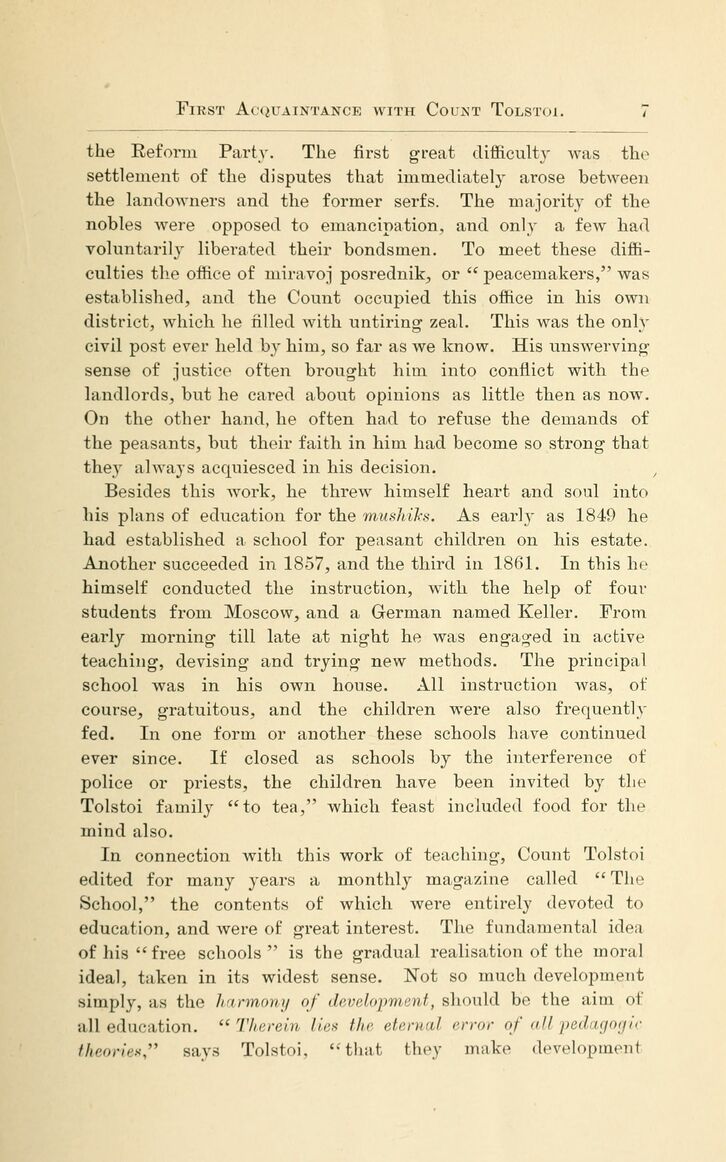
Full resolution (JPEG) - On this page / på denna sida - I. First Acquaintance with Count Tolstoi

<< prev. page << föreg. sida << >> nästa sida >> next page >>
Below is the raw OCR text
from the above scanned image.
Do you see an error? Proofread the page now!
Här nedan syns maskintolkade texten från faksimilbilden ovan.
Ser du något fel? Korrekturläs sidan nu!
This page has been proofread at least once.
(diff)
(history)
Denna sida har korrekturlästs minst en gång.
(skillnad)
(historik)
the Reform Party. The first great difficulty was the
settlement of the disputes that immediately arose between
the landowners and the former serfs. The majority of the
nobles were opposed to emancipation, and only a few had
voluntarily liberated their bondsmen. To meet these
difficulties the office of miravoj posrednik, or “peacemakers,” was
established, and the Count occupied this office in his own
district, which he filled with untiring zeal. This was the only
civil post ever held by him, so far as we know. His unswerving
sense of justice often brought him into conflict with the
landlords, but he cared about opinions as little then as now.
On the other hand, he often had to refuse the demands of
the peasants, but their faith in him had become so strong that
they always acquiesced in his decision.
Besides this work, he threw himself heart and soul into
his plans of education for the mushiks. As early as 1849 he
had established a school for peasant children on his estate.
Another succeeded in 1857, and the third in 1861. In this he
himself conducted the instruction, with the help of four
students from Moscow, and a German named Keller. From
early morning till late at night he was engaged in active
teaching, devising and trying new methods. The principal
school was in his own house. All instruction was, of
course, gratuitous, and the children were also frequently
fed. In one form or another these schools have continued
ever since. If closed as schools by the interference of
police or priests, the children have been invited by the
Tolstoi family “to tea,” which feast included food for the
mind also.
In connection with this work of teaching, Count Tolstoi
edited for many years a monthly magazine called “The
School,” the contents of which were entirely devoted to
education, and were of great interest. The fundamental idea
of his “free schools” is the gradual realisation of the moral
ideal, taken in its widest sense. Not so much development
simply, as the harmony of development, should be the aim of
all education. “Therein lies the eternal error of all pedagogic
theories,” says Tolstoi, “that they make development
<< prev. page << föreg. sida << >> nästa sida >> next page >>